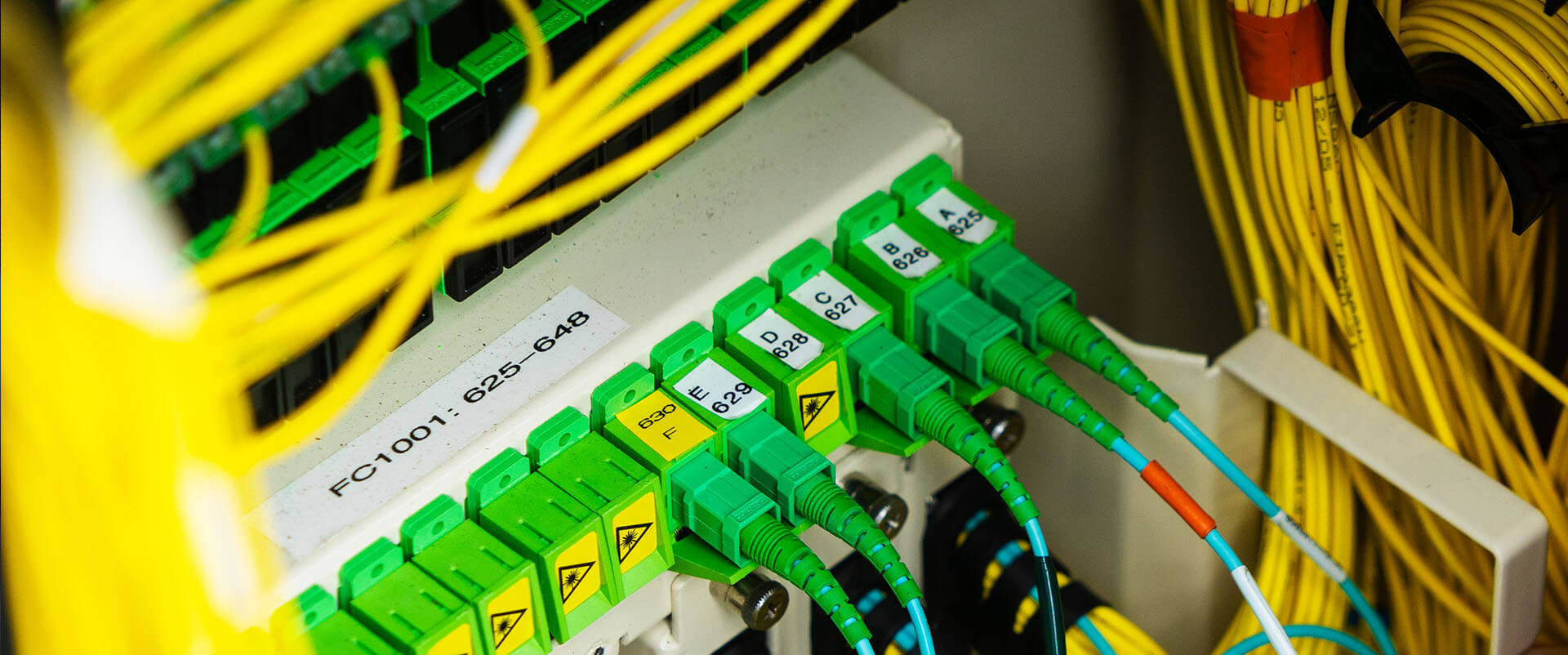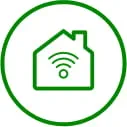From streaming movies and connecting with friends on social media to working remotely and accessing essential information, having a fast, reliable internet connection is nothing short of a necessity. If you’ve researched various internet plans, you might have come across the term "data cap." However, if you’re considering an internet plan that has a data cap, you might want to reconsider. In this article, we’ll delve into what data caps are, why they exist and why it's generally better for you to opt for plans without data caps.
What is a data cap?
A data cap (sometimes referred to as a data usage limit or bandwidth cap), is a limit imposed by internet service providers (ISPs) on the amount of data you can use within a specific time frame, typically on a monthly basis. This limitation can apply to both upload and download data, encompassing virtually all online activities such as streaming, online gaming, browsing and more. Once you reach your data cap, the ISP may either “throttle ” your internet speed (slow down your internet connection) or charge you additional fees for extra data usage. While it’s easy to see the negative impact that a data cap has on you, the subscriber, it begs the question: Why would an ISP impose a data cap anyway?
Reasons why an ISP might impose a data cap
Internet service providers often cite several reasons for implementing data caps, including:
- Network management: Many ISPs will tell you that data caps are necessary to help allocate and ensure fair usage of network resources. By limiting heavy data users, they aim to prevent network congestion, ensuring that all customers receive consistent and reliable service
- Tiered pricing: Data caps are also tied to tiered pricing models, where you can choose from different plans based on your data needs. This approach theoretically allows you to pay for the amount of data you actually consume.
- Maximizing profits: Some critics accuse ISPs of using data caps simply as a revenue-generating strategy. By charging subscribers extra fees for exceeding their data limits, ISPs can increase their profits beyond their basic subscription fees.
Drawbacks of data caps
While these arguments for implementing data caps might have some validity, there are several drawbacks associated with this practice.
- Inhibited internet usage: Data caps can prevent you from fully enjoying your online activities. Streaming high-definition content, online gaming and downloading large files can quickly eat up your data, leading to a significantly diminished online experience.
- Lack of flexibility: In a world where working from home, online education and streaming entertainment are commonplace, data caps can be restrictive. In extreme cases, you might be forced to ration your data usage or simply stop certain online activities in order to avoid exceeding their limits and paying overage fees.
- Unclear measurements: Measuring data usage can often be complex and errors are known to occur. You might find it challenging to even understand how your data usage is being calculated, which can lead to unexpected charges or throttled speeds.
- Discouragement of innovation: Data caps can discourage innovation and creativity, limiting the potential for new services and technologies that require high data usage. This not only restricts you from taking advantage of and enjoying these new services and technologies but can stifle the growth of the digital economy.
- Inequity: Data caps can disproportionately affect low-income households and individuals who rely heavily on the internet for work, education or other essential activities. These users may struggle to afford additional data or suffer from reduced internet speeds.
Benefits of no data caps
In contrast to data-capped plans, internet plans with no data caps offer you the freedom to use the internet without the fear of exceeding data limits. It should be noted that, while most cell phone companies offer unlimited data plans, accessing the internet through your cell phone’s WiFi is likely going to result in far slower connection speeds than the much more powerful signals of a router. Here are some pretty compelling reasons why you should choose internet access without data caps:
- Enhanced user experience: Unlimited internet allows you to fully engage in online activities without worrying about data restrictions. Streaming, video conferencing, online gaming and downloading large files become seamless, full-expression experiences.
- Flexibility: Unlimited plans provide you with the flexibility to adapt to changing internet usage patterns. With remote work and digital entertainment becoming more prevalent, you can use your internet connection without any restrictions.
- Predictable billing: Unlimited plans offer predictability in monthly billing. You don’t have to worry about unexpected charges for surpassing your data limits, making it easier to manage your finances.
- Encourages innovation: Unlimited internet fosters an environment that encourages innovation and the development of new online services and technologies. Entrepreneurs and creators can explore new possibilities without the fear of data restrictions.
- Equitable access: Unlimited plans promote equitable access to the internet. In an era where connectivity is a must have for education, employment and communication, removing data caps ensures that everyone has the opportunity to thrive online.
Making the choice: data capped vs. unlimited internet
When you choose an internet plan, you have to factor in your specific needs and priorities. If you rely heavily on the internet for work, education, entertainment or any other activities, an internet connection without data caps might be the best plan for you.
As you research and evaluate different ISPs and plans, think about your average data usage, the number of devices connected to your network and the types of activities you frequently engage in. The average household consumes approximately 600 GB of data per month. While that might work for most people, maybe you’re a heavy gamer and require a more robust data plan. You should also ask about any potential throttling policies or hidden charges that might affect your experience with a data-capped plan.
Data caps can pose significant limitations on your internet usage and hinder your ability to embrace everything that the digital world has to offer. While ISPs argue that data caps are necessary for network management and revenue generation, the drawbacks often outweigh the benefits, particularly in a society where internet connectivity is vital. Opting for an unlimited internet plan empowers you to make the most of your online experiences, fostering a more equitable and innovative digital landscape for everyone.
Ziply Fiber offers the fastest home internet in the Northwest. Whether you want to stream your favorite online content, experience seamless video conferencing or attend online classes with a consistent, dependable connection, Ziply Fiber is here to provide you with an exceptional internet experience.






